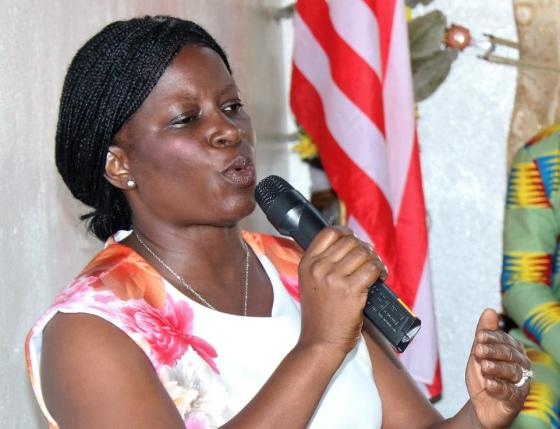Liberia: ‘Senate’s Failure to be Independent Is Affecting the Country

Senator Karnga-Lawrence: “Our failure to be independent is affecting the country greatly."
A ranking official of the Liberian Senate has admitted that the body is compromised and lacks independence.
The rare admission from Senator Nyonblee Karnga-Lawrence, who heads the Senate Committee on Rules, Order, and Administration of the Senate seems to validate the widespread public belief that members of the legislature pay less attention to meticulously scrutinize bills but pass them in record time — dubbed ‘4G passage’.
“Over the years, I have said that the Liberian Senate is compromised. The Legislature has the power that is not jealously guarded,” said Senator Nyonblee Karnga-Lawrence, the fourth highest-ranking official in the Senate.
“People who are not making their independent decisions here in Liberia are people who are compromised,” added Sen. Karnga-Lawrence of Grand Bassa County. “Our failure to be independent is affecting the country greatly. We have to be independent to get things going in the right direction.”
The Grand Bassa County lawmaker noted that the Senate always missteps in dealing with some key national issues and has fallen short in using its power to make decisions that would benefit the country and its people, rather, “people are interested in making decisions on a party line.”
The Senate, according to Sen. Karnga-Lawrence, follows the mandates and decisions of the President of Liberia — so they do not make the decision the Liberian people want. She then claimed that members of the Senate are not sincere with their oversight responsibilities. As a result, the public sector is not performing as anticipated, while the country is not doing well.
“Some bills are passed the way they are because, here, some people’s loyalty is to the ruling party rather than to the country,” Sen. Karnga-Lawrence noted in an exclusive interview with the Daily Observer. “That is the case. If we had an agenda as a Senate, we would have ensured that our security sector, the health, and many others are adequately funded and that will lead to progress.”
“Well when the Senate is affected, the country becomes greatly affected by this kind of decision. The Senate has two key responsibilities — oversight and appropriation and in the case like now, where the power is not working, we cannot ensure that ministries and agencies are performing their functions,” the Senator further.
In Liberia, there has always been a very strong executive branch that has not had effective checks and balances from other branches of the government.
And the legislature, which is like the anchor that holds the ship of state from drifting, is not just blessed with the powers to make laws. Through the Constitution, which gives it the function of oversight, the Legislature also has the power to monitor the effectiveness of the laws passed, query their implementation, and review the laws when the desired impacts are not achieved.
But Sen. Karnga-Lawrence’s revelations suggest these constitutional powers are, for lack of a better word, squandered.
If the Senator’s claim is anything to go by, then the Moore Stephens audit on lucrative resource deals in Liberia, which found that almost all the concessions awarded by the government since 2009 have not been compliant with the law, would be wholeheartedly true.
The damning report, commissioned by the government of President Ellen Johnson Sirleaf, found that only two out of 68 resource contracts worth US$8 billion (£5.1 billion) were conducted properly. Concessions granted in agriculture, forestry, mining, and oil – including a lucrative deal with oil company Chevron – were either wholly or partially flawed.
Since then, the legislature has continued to pass laws in a hurried manner. The likes of ETON and EBOMAF loans, the Bao-Chico agreement, and the third amendment to the ArcelorMittal mineral development agreement (MDA), which terms have yet to be made public, are just a few.
The Senate later ended up voting to cancel the ETON and EBOMAF loan agreements, which they hurriedly ratified after realizing that the deals were flops.
Those cancellations, according to Sen. Karnga-Lawrence, are just two of the many pieces of evidence that the Senate is not using its oversight responsibilities to hold accountable and correct the executive. It has put the country “where it is today — a poorly functioning public sector.”
“We are not sincere with our oversight responsibilities and yet, to realize that we are a different branch of government,” the Grand Bassa Senator added. “But if we continue working loosely with bills and issues, then we have a problem and this is it. For example, the budget comes with just numbers and no programs, yet the figure is approved, thus making it difficult for us to track expenditure. We should, at all times, know the programs these beneficiaries of public funds have and are effectively running.”
“Even if they don’t send their quarterly reports as provided for by law, they don’t care because, in the end, the majority of our fellow Senators vote to see them through,” Sen. Karnga-Lawrence noted.
